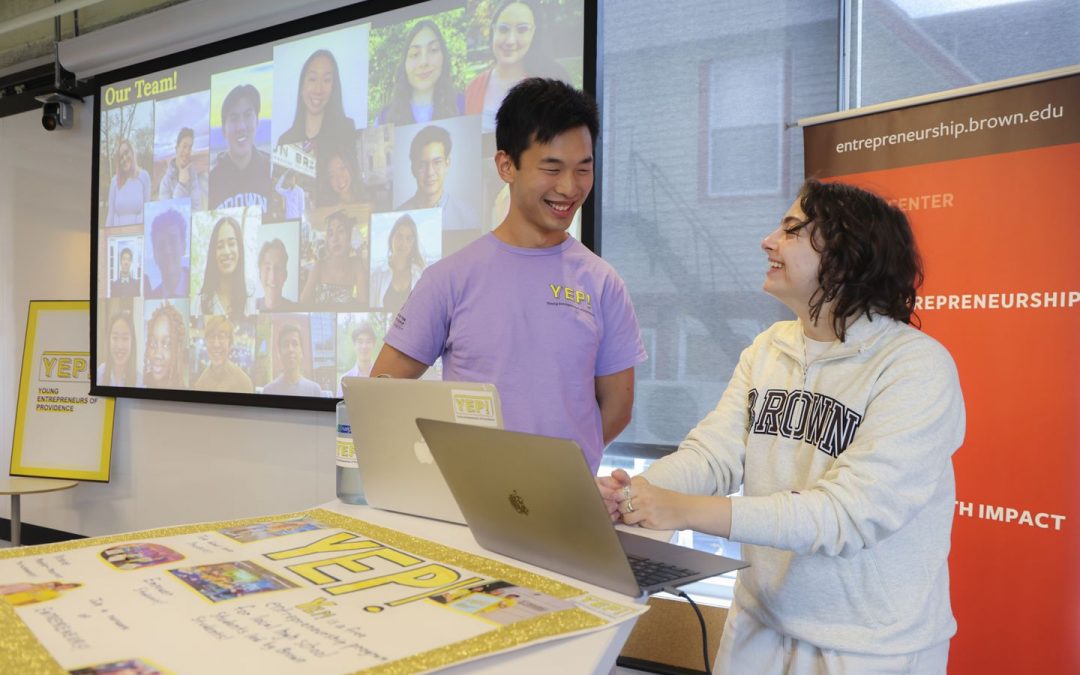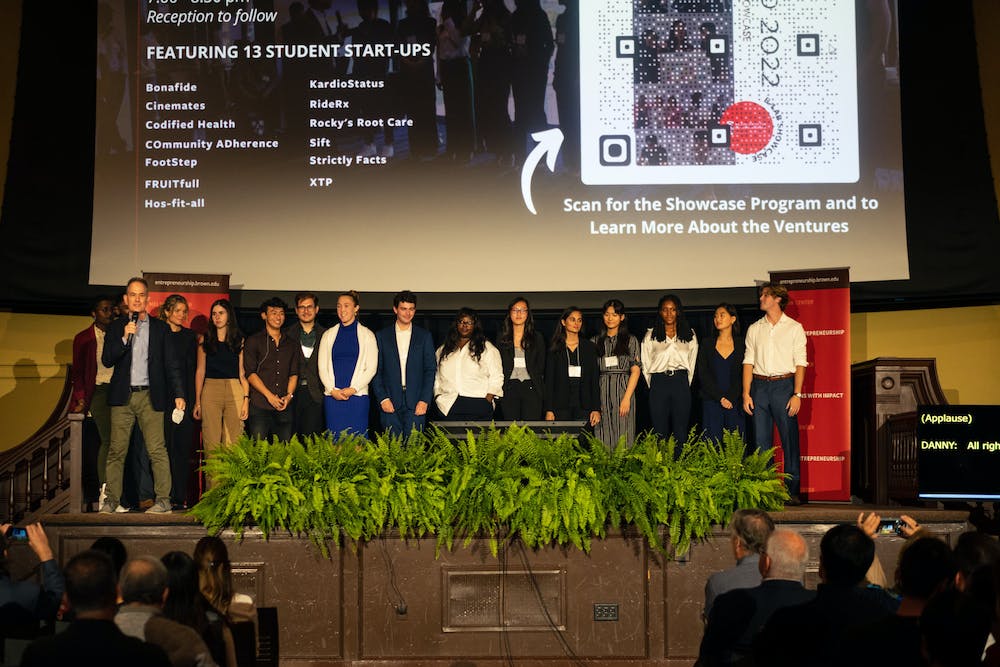
Boston Globe Article Features YEP! Young Entrepreneurs of Providence
Ivy League, local high school students, look to close economic income gaps through entrepreneurship | A free incubator program for students in college towns, the Young Entrepreneurs Program has worked with 12 different Providence public schools, By Globe Staff
Updated October 24, 2022, 6:00 a.m.
Since about 1980, the divergence of income between the wealthiest and the rest of society has widened for four straight decades, according to data from the US Bureau of Economic Analysis. Income inequality in Ivy League university host cities is particularly stark, including in Providence, where 23 percent of the population lives below the poverty line — almost double the national average of 12.8 percent.
Closing the income inequality gap is why three Brown University students — Audrey Shapiro, Lucia Winton, and Leah Lam — founded the Young Entrepreneurs Program in 2019. The program, also known as YEP, is a free semester-long entrepreneurship program for local high school students in college towns, and is led and facilitated by university students.
In three years, the program has worked with K-12 schools across Rhode Island, including more than 150 students from 12 different Providence public schools. Branches of YEP also launched in New Haven, Connecticut and Berkley, California in 2021. Alums of the program have gone on to launch affordable K-12 tutoring startups and freelance cosmetics businesses.
Each of the co-founders graduated last spring, but Will Yang, a Brown applied math and computer science senior from New Jersey, has taken over as program director. He is graduating in December.
Q: How does the YEP program work?
Yang: It’s a seven-to-eight week program that runs every fall and spring. We have weekly topics that include design thinking, bottom-up research, prototyping, business models, fundraising, and pitching. The program ends with a “pitch night,” where groups of [high school] students select a community issue and form a basis for a venture. Then they pitch it to a panel of judges, which are made up of industry experts and Brown faculty.
How does the program begin?
Entrepreneurship is a structured process for solving problems. The first two sessions are all about identifying problems and these high school students identify problems that they see in their personal lives, in their communities, and around the world.
What are the program’s goals?
One of our central goals for the program is to help students build confidence to pursue studying business, to work as an entrepreneur, or at a startup. But we also want them to become confident in themselves, their ideas, and as leaders. For some students, Brown might feel distanced even though the campus is physically close to where they may live. We want to create a bridge at YEP so local students can come to campus and believe it’s their space, too.
Where are these students from?
We have about 25 local high school students — from freshmen to seniors — involved in the program this year. They are from schools like The Met, Classical High [in Providence], Blackstone Academy Charter, Paul Cuffee, East Greenwich High School, Cumberland High School, La Salle, Village Green Virtual Charter, and Davies Career and Technical High School.
Many of those schools are private or charter schools. Or in Classical’s case, the best-performing public high school in Providence Public Schools. How is YEP trying to reach lower-performing high schools?
We do have a school engagement team that is evolving and trying really hard to reach those schools. We’re hosting information sessions where we are reaching out to school counselors and teachers and have student ambassadors that try to reach their own networks. But we really want a diverse cohort and to reach the people that would benefit the most from it. But there are a lot of restraints. Those schools that have less resources have teachers and counselors who are overwhelmed and don’t have the time to talk about this program. There’s also tremendous [high school] students out there that are working multiple jobs and we are trying harder to reach out to them to work for their schedule.
What other challenges does the program face?
YEP could very much use financial help for our expansion and sustainability. Our co-founder Audrey has been looking at funding for a full-time position to help expand YEP in schools all across the country, so financial support would go a long way in achieving our long-term mission. It’d also be really helpful for us in supporting our students after the program. We are trying to find a way for transportation to not be a problem or a barrier in them participating in the program.
What kind of experience do you bring to YEP in order to mentor high school students?
Both of my parents are immigrants. My mom is from Taiwan and is a teacher and my dad, who grew up in Brazil, is an entrepreneur, and always encouraged me to be one too. I took a class about the entrepreneurship process at Brown and founded a startup [called Belong Here] that connects immigrants [who were in the US for less than seven years] to a first or second-generation resident who serves as a mentor. I participated in Brown’s B-Lab accelerator program and was a social innovation fellow [which was sponsored by the Social Enterprise Greenhouse] where I was able to get training, mentorship, and funding to work at a local nonprofit and launch my own startup.
What’s next for you after graduation?
I have an interview for Ventures for America in Detroit. I want to continue working with startups, but I’m also considering economy research positions.
The Boston Globe’s weekly Ocean State Innovators column features a Q&A with Rhode Island innovators who are starting new businesses and nonprofits, conducting groundbreaking research, and reshaping the state’s economy. Send tips and suggestions to reporter Alexa Gagosz at alexa.gagosz@globe.com.

 Celebrating the impact of B-Lab and Jason Harry
Celebrating the impact of B-Lab and Jason Harry Jason Harry Leadership Award bobblehead
Jason Harry Leadership Award bobblehead